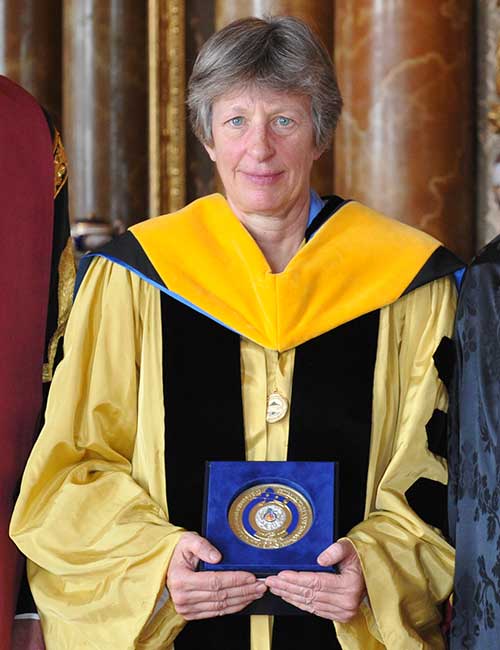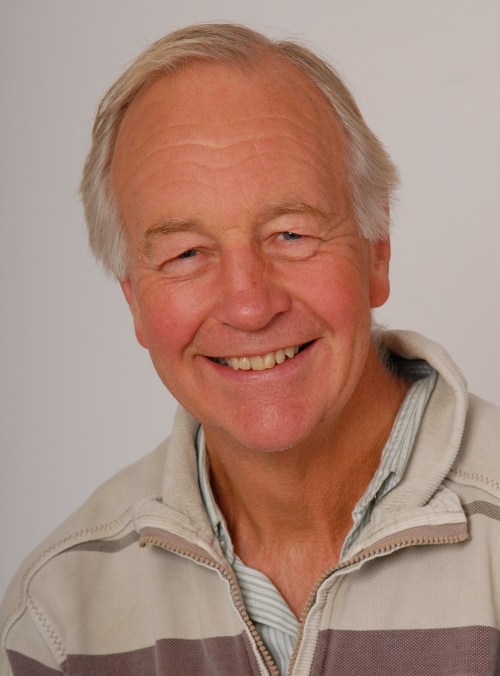They join a Fellowship of some 1,400 outstanding individuals representing science, engineering and medicine: a global scientific network of the highest calibre.
Professor Cashman is a volcanologist who studies links between chemical and physical factors that control magma ascent, eruption, and emplacement on the Earth’s surface. She has studied volcanoes on all seven continents and explored a wide range of eruption styles.
She is best known for her work that links the kinetics of bubble and crystal formation to the behaviour of volcanic materials, but has worked on problems that span from the chemical to physical to social aspects of volcanism. She has worked with all the US volcano observatories and served on the Scientific Advisory Committee for the island of Montserrat.
Professor Cashman received her doctorate from The Johns Hopkins University and taught at Princeton University and the University of Oregon, USA, before moving to the UK in 2011 as an AXA Research Professor at the University of Bristol. In 2014 she was awarded an AXA Endowed Chair in Volcanology at Bristol. She is a Fellow of the American Geophysical Union (AGU) and the American Academy of Arts and Sciences, and is a member of the Academia Europaea, and has received a Royal Society Wolfson Merit Award.
Head of the School of Earth Sciences, Professor Michael Walter said: “All of us in Earth Sciences are extremely proud and pleased that Kathy Cashman has been elected as a Fellow of the Royal Society. Kathy’s many outstanding achievements in the field of volcanology make her a great choice for this honour.”
Professor Cashman was also elected to the US National Academy of Sciences this week. She is one of 84 new members elected this year in recognition of their distinguished and continuing achievements in original research.
Professor Lodge (BVSc Bristol 1963; PhD Bristol 1974) worked at the University of Bristol as a veterinary surgeon and anaesthetist. His doctoral and postdoctoral studies on the neuropharmacology of amino acids in Bristol with Professor TJ Biscoe, and in the Australian National University with Professor DR Curtis, helped establish the role of glutamate as a central neurotransmitter and characterised its actions between AMPA, NMDA and kainate receptor subtypes.
Subsequently at the Royal Veterinary College, he linked his interests in anaesthesia and glutamate receptors, making the key discovery that the dissociative anaesthetics, ketamine and phencyclidine, selectively blocked NMDA receptors. He related NMDA antagonism to psychotomimetic effects, providing a basis for the glutamate hypothesis of schizophrenia and redirected pharmaceutical search for schizophrenia therapies.
Professor Lodge continued his work with Eli Lilly & Co where he was associated with taking glutamate analogues into the clinic for brain diseases, and where he instigated collaborations with University of Bristol researchers including Professors Collingridge and Headley.
Professor Lodge’s current research, in Bristol’s Centre for Synaptic Plasticity, concerns the mechanism of action of new ‘legal highs’ and the consequences of spontaneous mutations in glutamate receptors.
Professor Chris Fry, Head of the School of Physiology, Pharmacology and Neuroscience, said: ""The honour of a fellowship to the The Royal Society granted to David Lodge is a just recognition of the groundbreaking work carried out be The Synaptic Plasticity Group at Bristol, and David in particular. Evaluation of the molecular pathways involved in memory and learning, and especially the role and characterisation of certain glutamate receptor subtypes, will not only enhance our understanding of these vital functions but also lead the way to manage conditions such as Alzheimer's Disease and epilepsy. Although David is modest enough to say that he was helped by his colleagues at Bristol, his insight and leadership was essential that such work reached fruition - the congratulations that he has received are rightly deserved."
The Fellowship of the Royal Society is made up of the most eminent scientists, engineers and technologists from the UK and the Commonwealth. Past Fellows and Foreign Members have included Isaac Newton, Charles Darwin and Albert Einstein.
Fellows of the Royal Society are elected for life and designate themselves through the use of the letters FRS after their names.
The University of Bristol has 25 Fellows of the Royal Society among current staff, and 18 among its emeritus professors.
Full list of Fellows of the Royal Society at the University of Bristol

